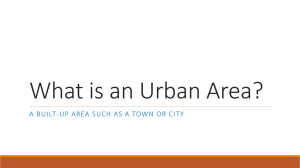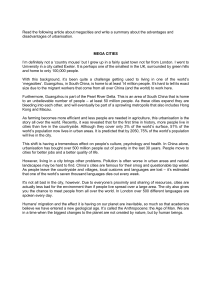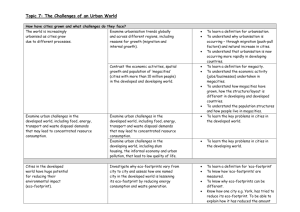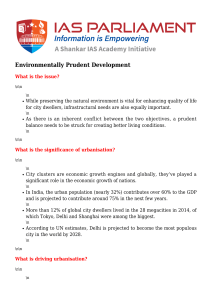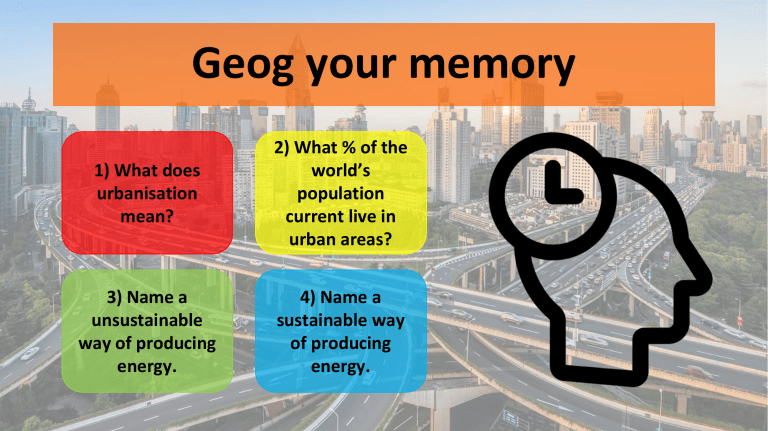
Geog your memory 1) What does urbanisation mean? 2) What % of the world’s population current live in urban areas? 3) Name a unsustainable way of producing energy. 4) Name a sustainable way of producing energy. The Emergence of Megacities Agreed Learning Outcomes: • Identify the role of Megacities in Urban Geography. • Describe how Megacities have emerged and grown. • Consider the potential issues that may arise with Megacities. Link and connect Mutual Respect and Responsibility: • To understand how rising urbanisation may create opportunities and problems. What is urbanisation? Megacities Being Lagos Case Study Task 1: How does urbanisation happen? Population (Millions) Population growth is the difference between birth rate and death rate. When the birth rate is higher a population grows, this is know as natural increase. When the death rate is higher, it is known as natural decrease. Extend Your Learning: Which of the four factors do you think has the most impact on urbanisation? Explain why you think this. Year 1950 New York 13 Lagos 1 1975 16 3 2000 18 11 2015 21 17 1. Write out the subtitle above. 2. Write down the paragraph in the blue box. 3. Using Figure 13.4 (Page 200) create a mindmap around your building icon to summarise the four factors that impact urbanisation. 4. Using the data table, create a graph similar to the one in Figure 13.5 to compare how two cities have urbanised. 5. Once you have stuck this graph in (as well as the data table), answer the following questions: 1. 2. In which year did each city grow the most? How does each city compare? Did they grow at the same time? Why might they be different from each other? Task 2: Where will megacities be in the future? 1. Write out the subtitle above. 2. Copy out the information in the blue box. 3. Using the textbook glossary define: Inequality and Urban Sprawl 4. Read the extract ‘New Decade, New Challenges’. 5. Complete the 6 questions on that sheet. 6. Glue this into your book. 7. Glue the map shown into your book, create a TEA paragraph to describe the predicted distribution of megacities in 2030. China has plans to merge cities in the Pearl River Delta to create one large Megacity, with a population of 120 million. Existing cities like Hong Kong and Shenzhen would merge to create a city 20x the size of London.

